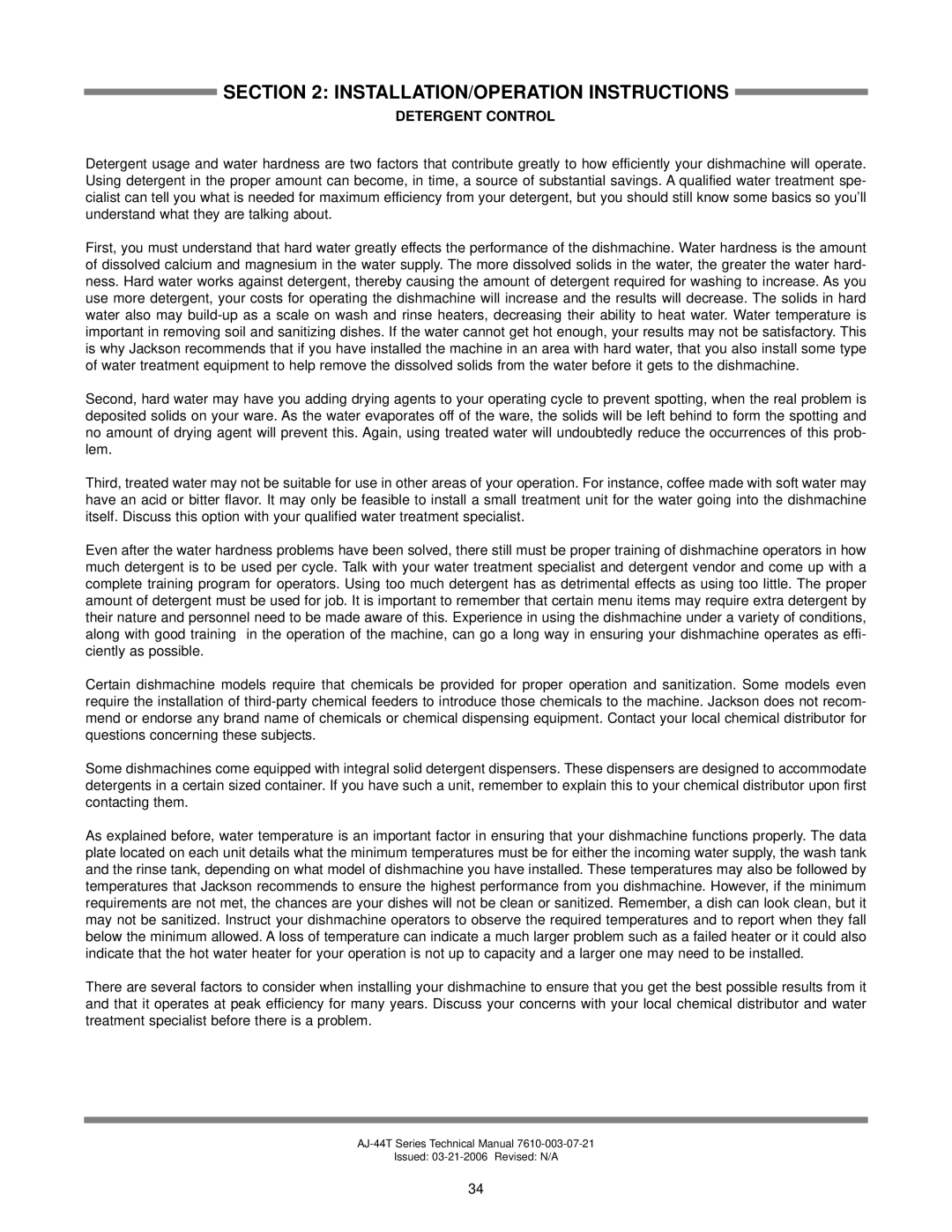AJ-66TS, AJ-44TG, AJ-66TG, AJ-44TS, AJ-80TS specifications
The Jackson AJ series is well-known for its robust design and reliable performance in the realm of advanced air-jet weaving technologies. Among the various models, the AJ-80TE, AJ-44TE, AJ-66TE, AJ-80TS, and AJ-44TS stand out for their unique features, cutting-edge technologies, and versatility in textile production.The AJ-80TE is designed for high-speed and efficient weaving, making it ideal for modern textile manufacturing. It offers an impressive production capacity while maintaining a high level of precision. This model incorporates a high-performance air-jet system that ensures quick replenishment of the weft yarn, significantly reducing downtime during production. With a robust construction, the AJ-80TE can handle a wide variety of fabrics, including heavier materials, ensuring adaptability and durability.
Similarly, the AJ-44TE model showcases advanced weaving capabilities with an emphasis on versatility. It is engineered to produce a broad range of textiles, from lightweight fabrics to more substantial materials. The innovative air-jet technology utilized in the AJ-44TE allows for smooth operation and enhanced fabric quality. Its user-friendly interface simplifies the setup process, enabling operators to switch between different fabric types with minimal effort.
The AJ-66TE model presents additional advancements, featuring a sophisticated control system that optimizes weaving patterns. This model is particularly noted for its precision in producing intricate designs, making it a perfect choice for high-end textile applications. Its energy-efficient design also contributes to lower operational costs, aligning with the industry's increasing focus on sustainable production practices.
Moving on to the AJ-80TS and AJ-44TS models, these machines integrate state-of-the-art technologies that enhance user experience and operational efficiency. Equipped with advanced sensors and automation features, these machines can monitor weaving conditions in real-time, ensuring consistent quality and minimizing fabric defects. The AJ-80TS is specifically tailored for larger production runs, while the AJ-44TS excels in versatility, accommodating a wide range of fabric specifications.
In summary, the Jackson AJ series, comprising the AJ-80TE, AJ-44TE, AJ-66TE, AJ-80TS, and AJ-44TS, represents the forefront of air-jet weaving technology. Their combination of robustness, versatility, and cutting-edge features makes them indispensable in modern textile manufacturing, fulfilling the demands for both efficiency and high-quality output. As the industry continues to evolve, these machines stand ready to meet new challenges, empowering manufacturers to push the boundaries of textile innovation.

